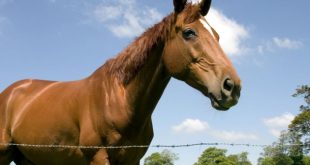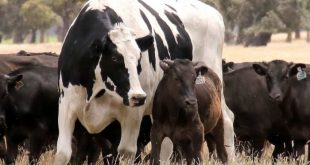In this episode of Walking With Pete I chat to you guys about the Bilingual Talks podcast, career choices, me teaching English, and more. Walking With Pete – Bilingual Talks, Career Choices, Me Teaching English & More Hey guys! Welcome to this episode of Walking With Pete. It’s probably about 8 …
بیشتر بخوانید »Admin
تلفظ استرالیایی What Do I & What Am I
] teach you how the pronunciation of “What Do I” and “What am I” changes when English speakers speak at a natural speed. Pronunciation – What Do I & What Am I G’day guys. Welcome to this episode of Aussie English. Today we’re going to do some more pronunciation stuff …
بیشتر بخوانید »تلفظ استرالیایی what do you/what are you
In this episode you’ll learn how the pronunciation of the phrases “What do you” and “What are you” shift when spoken quickly to sound like “Whadehya”. Pronunciation – What do you/What are you = Whadehya G’day guys, and welcome to this pronunciation episode of Aussie English. And in today’s episode I’m …
بیشتر بخوانید »Commonly Used Horse Idioms – Part 1
1. To beat a dead horse Figurative: To waste time doing something that has already been attempted. Literal: This phrase alludes to the fact that the horse is dead so beating it now is pointless. Example: “Is it worth asking him again or am I just beating a dead horse?” 2. No horse …
بیشتر بخوانید »Commonly Used Fish Idioms – Part 2
1. To have the memory of a goldfish Figurative meaning: To have a very poor memory; to forget quickly. Literal meaning: This phrase alludes to the idea that goldfish have very short memories. Example: “He’s always forgetting my birthday. I swear he has the memory of a goldfish!” Other forms: To have a goldfish’s …
بیشتر بخوانید »Commonly Used Fish Idioms – Part 1
1. Like a stunned mullet Figurative meaning: Looking dazed; stupefied; shocked; surprised; confused. Literal meaning: This phrase alludes to the stunned look on a recently caught fish, which has been hit and made unconscious. Example: “Don’t just stand there like a stunned mullet. Come and help me do this!” Note: This is a …
بیشتر بخوانید »The Tasmania Floods
In this episode I show you a news story from The Feed SBS on the recent flooding in Tasmania, and then break down some of the more complicated idioms and terms used in it. Watch the video with full subtitles on YouTube, and the vocabulary breakdown at the end. Introduction: G’day guy’s …
بیشتر بخوانید »اصطلاح To Be A Pain [In The Neck/Arse]
In today’s episode I teach you guys the expression “To Be A Pain”, “To Be A Pain In The Neck” and “To Be A Pain In The Arse”, as well as what the mean, how to use them, and then we go through some exercises. Expression – To Be A …
بیشتر بخوانید »Commonly Used Cow Idioms
Learn Australian English in this post where I teach you guys 11 of the most commonly used cow idioms in Aussie English! 1. To have a cow Figurative meaning: To become angry, agitated, worried or upset. Often said in the negative “don’t have a cow” when asking someone to calm down …
بیشتر بخوانید »Embarrassing English Errors : Piece & Piss
In this episode of Embarrassing English Errors I teach you the subtle difference in pronunciation of the words piece & piss. Embarrassing English Errors Ep01 – Piece & Piss Hey guys and welcome to the first episode of Embarrassing English Errors. So, this is episode number one. So, today I’m going to teach …
بیشتر بخوانید » ایرانیان استرالیا Australia Iran بزرگترین جامعه ایرانیان ساکن استرالیا Australia Iran
ایرانیان استرالیا Australia Iran بزرگترین جامعه ایرانیان ساکن استرالیا Australia Iran










